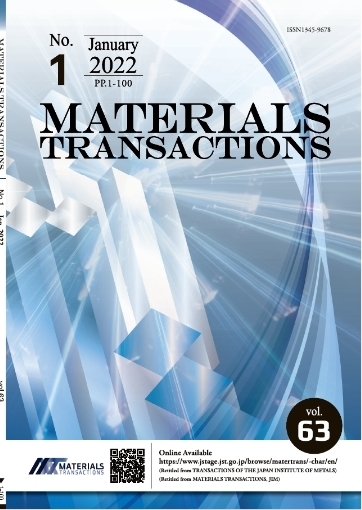Recent Progress in Research and Development of Metallic Structural Biomaterials with Mainly Focusing on Mechanical Biocompatibility
Mitsuo Niinomi
pp. 1-13
抄録
The progress of metallic structural biomaterials, mainly titanium alloys, for implants with mainly focusing on mechanical biocompatibility is described. Mechanical biocompatibility includes not only Young's modulus but also broad sense of mechanical biocompatibilities such as balance of strength and elongation, fatigue endurance (fatigue strength) and fracture toughness. Specially, the present paper focuses on developments of high fatigue strength of (α + β)-type titanium alloys composed of non-toxic elements, low Young's modulus β-type titanium alloys composed of non-toxic and allergy-free elements, Young's modulus self-adjustable β-type titanium alloys composed of non-toxic elements, Ni-free β-type titanium alloys for biomedical applications. Ni-free stainless steels and Co-Cr-Mo alloys, cell viability of pure metals, and some very recent research and development topics are also briefly introduced in the present paper. This Paper was Originally Published in Japanese in Materia Japan 56 (2017) 205–210. In order to introduce more recent topics on metallic biomaterials, sections 4, 5, 9, and 10 were newly added. According to adding new sections, Tables 2 and 3, and Figs. 1–6, 8, 9, 13, and 19–25 were newly added. The Refs. 1), 4–12), 14), 28–39), 51), and 57–72) were also newly added. Following these changing, the numbers of tables, figures, and references were newly changed.
他の人はこちらも検索
溶接学会論文集 Vol.34(2016), No.2
鋼構造論文集 Vol.23(2016), No.92
材料と環境 Vol.66(2017), No.5










